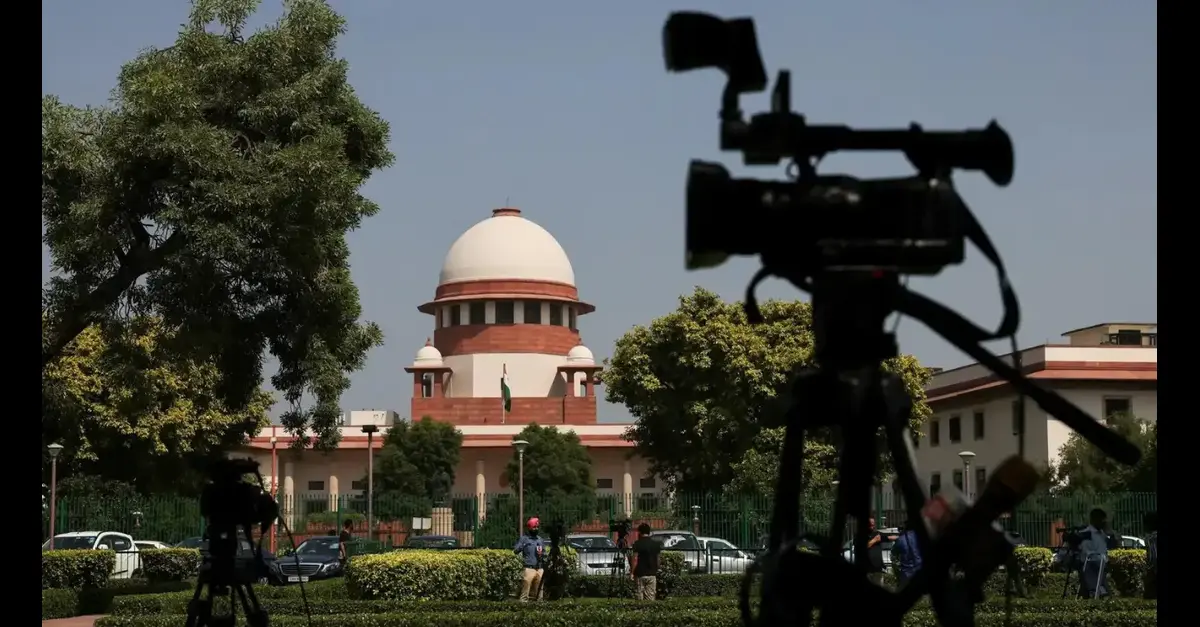INTRODUCTION
Digital inclusion is an important key element of equality and accessibility in times where digital services are essential for gaining access to financial services, government programs, and basic utilities. The Supreme Court recently rendered a landmark decision acknowledging PwDs difficulties when accessing digital platforms, particularly for a lot of mandatory services such as eKYC (electronic Know Your Customer). In a historic ruling, the Supreme Court ruled that digital inclusion is a legal right rather than just a privilege and ordered the government to guarantee that citizens with disabilities have complete access to eKYC and other required digital services. This ruling is a significant step in upholding PwDs rights under the Constitution and applicable disability laws.
BACKGROUND
The case started as a result of the petitions being submitted by organizations and disability rights activists who drew attention as to how inaccessible digital verification procedures, especially eKYC, are for people with disabilities. These citizens frequently encounter difficulties like the absence of assistive technologies on official portals or the inability to provide biometric authentication due to physical limitations. The petitioners contended that this kind of exclusion denies disabled people access to essential services like banking, healthcare, and government welfare programs, in addition also violates their right to equality. Judicial intervention was necessary because digital systems continued to be largely non-compliant with accessibility standards, even after the Rights of Persons with Disabilities Act, 2016, mandated equal access and reasonable accommodation.
KEY POINTS
- The Supreme Court upheld the fundamental right to access digital platforms, particularly for necessary services, as guaranteed by Articles 14 and 21 of the Constitution.
- Petitioners started emphasizing how many people with disabilities, particularly those who have visual impairment or limb loss, are unable to provide the biometric data required by current eKYC procedures, such as fingerprint or iris scans.
- The Rights of Persons with Disabilities Act, 2016, which requires equal access and reasonable accommodations in all public services, is violated by the inaccessibility.
- Advocate Amar Jain, a blind advocate, and Pragya Prasun, a survivor of an acid attack, filed several petitions calling for inclusive digital processes.
- The Supreme Court instructed the Union of India and pertinent regulatory agencies, such as UIDAI and RBI, to guarantee that eKYC and associated digital systems are made available to all types of disabled people.
- The decision underlined the need for digital infrastructure to adhere to universal design principles and offer assistive features such as voice commands, screen readers, or alternate KYC options.
- The ruling opens the door for welfare programs, SIM card verification, banks, and other digital public services to be accessible to all.
RECENT DEVELOPMENT
April 30,2025, the SC forced on the importance related to the necessity of digital inclusion for visually impaired or disabled persons in any other form throwing light on the importance of not violating the basic principles of The Constitution Of India,
The bench consisting of Justices J.B. Pardiwala and R. Mahadevan, called attention to the digital divide that reinforces systemic exclusion which not only affects persons with disabilities but also other individuals such as elderly citizens, minority groups and rural populations.
The court issued in depth instructions to the RBI, Centre and other regulatory bodies to amend the KYC standards reasonably in order to ensure all the persons with disabilities are able to access.
The SC commanded that all the government websites, educational resources, and financial technology services must be universally accessible to unprivilaged groups.
CONCLUSION
For people with disabilities in India, the Supreme Court’s ruling that digital inclusion is a fundamental right is a landmark affirmation of accessibility, equality, and dignity. The Court has addressed a long-standing digital divide that denied millions of people access to necessary services by requiring accessible eKYC procedures and issuing broad directives to government agencies and regulators. In addition to being a victory for the disabled community, this ruling serves as a reminder that all citizens, regardless of their physical or sensory abilities, must be able to use technology. This decision demands that policymakers create systems that embody the principles of substantive equality and universal access as India moves closer to becoming a digitally empowered society.
“PRIME LEGAL is a full-service law firm that has won a National Award and has more than 20 years of experience in an array of sectors and practice areas. Prime legal falls into the category of best law firm, best lawyer, best family lawyer, best divorce lawyer, best divorce law firm, best criminal lawyer, best criminal law firm, best consumer lawyer, best civil lawyer.”
WRITTEN BY PRIYANKA DESHIKAN.


